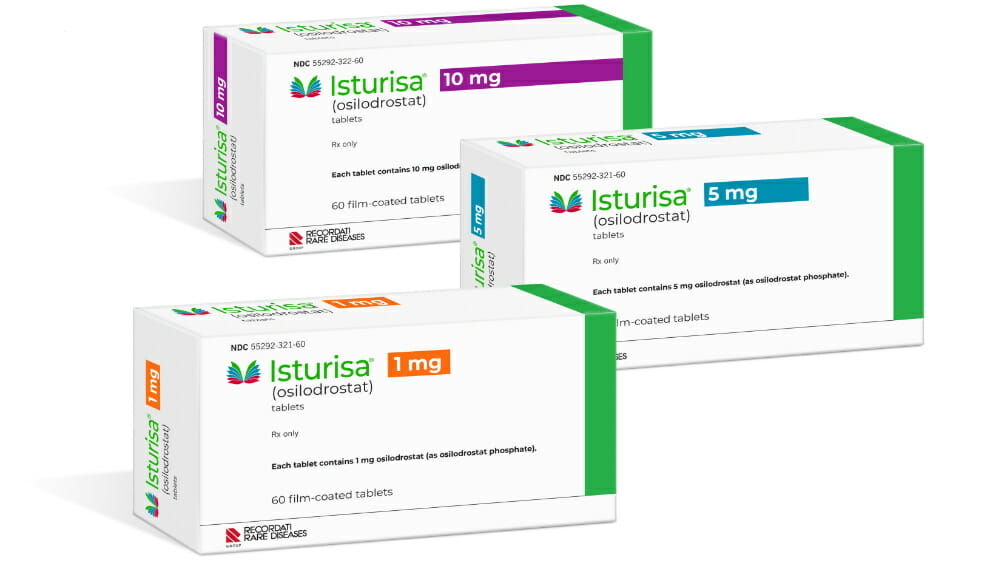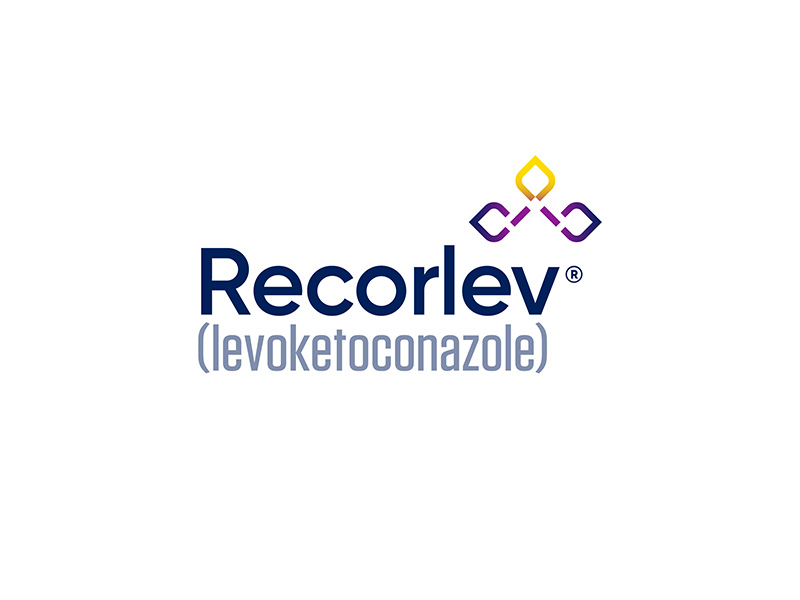New Cushing's syndrome treatments 2024
New Cushing's syndrome Treatments 2024
Cushing's syndrome is a rare endocrine disorder caused by prolonged exposure of the body's tissues to high levels of the hormone cortisol. This can result from the use of oral corticosteroid medication or the body producing excess cortisol due to conditions such as a pituitary adenoma (a benign tumor on the pituitary gland) or an adrenal gland tumor. Symptoms of Cushing's syndrome can include weight gain, particularly around the midsection and upper back, facial rounding, a fatty pad or "hump" between the shoulders, skin changes, and muscle weakness. The syndrome can also lead to high blood pressure, bone loss, and, in some cases, type 2 diabetes. Accurate diagnosis often requires a series of endocrine tests to measure cortisol levels and identify the underlying cause.
Treatment options for Cushing's syndrome are designed to lower the high levels of cortisol in the body and depend on the exact cause of the excess cortisol. If the condition is caused by medication, the doctor may adjust the dosage or switch to a different drug, if possible. In cases where a tumor is producing the excess cortisol, surgical removal of the tumor is often recommended. Other treatment options may include radiation therapy, medications that control cortisol production, or adrenal-blocking drugs. It is important for individuals to work closely with their healthcare provider to determine the most appropriate treatment plan based on their specific circumstances.

Treatment options
| Treatment option | Estimated cost | Efficacy | Eligibility |
|---|---|---|---|
| Surgery (Adrenalectomy) | Varies widely | Highly effective if tumor is localized | Patients with a single adrenal tumor |
| Radiation therapy | Varies widely | Varies; may be used in conjunction with other treatments | Patients with ACTH-producing pituitary tumors not suitable for surgery |
| Medications (Ketoconazole, Metyrapone, Mitotane) | $200 - $500 per month | Moderate; depends on individual response | Patients who are not candidates for surgery or in preparation for surgery |
| Isturisa (osilodrostat) | $3000 - $4500 per month | Highly effective in reducing cortisol levels | Adults with Cushing's disease for whom pituitary surgery is not an option or has not been curative |
| Recorlev (levoketoconazole) | $4000 - $6000 per month | Highly effective in reducing cortisol levels | Adults with endogenous Cushing's syndrome |
| Signifor (pasireotide) | $6000 - $8000 per month | Effective in reducing cortisol levels | Adults with Cushing's disease for whom surgery has failed or is not an option |
| Korlym (mifepristone) | $3000 - $5000 per month | Effective for control of hyperglycemia | Adults with endogenous Cushing's syndrome who have type 2 diabetes or glucose intolerance |
| Experimental treatments (e.g., BLZ-100) | Cost not established | Varies; currently under investigation | Patients enrolled in clinical trials |
Treatments options in detail
Medical Management of Cushing's Syndrome
The treatment of Cushing's syndrome primarily focuses on reducing the excessive levels of cortisol in the body. The most common treatments include surgery, medication, radiation therapy, and sometimes a combination of these approaches.
Surgical Treatment
Surgical removal of the tumor is often the first-line treatment for Cushing's syndrome, especially when the cause is a pituitary adenoma (Cushing's disease) or an adrenal tumor. If the tumor is on the pituitary gland, the surgery is called a transsphenoidal adenomectomy, which is performed through the nose and sphenoid sinus. If the tumor is on the adrenal gland, the procedure is known as an adrenalectomy, which involves removing one or both adrenal glands. Surgery aims to normalize cortisol levels, but it may not be suitable for all patients, especially those with ectopic ACTH syndrome or those who are not surgical candidates due to other health issues.
Medication Therapy
When surgery is not an option or if it's unsuccessful, medication therapy is used to control cortisol production. The most commonly used medications include:
- Ketoconazole (Nizoral) - an antifungal medication that can suppress cortisol production.
- Metyrapone (Metopirone) - blocks the enzyme involved in the production of cortisol.
- Mitotane (Lysodren) - originally developed as a pesticide, it can destroy adrenal tissue and decrease cortisol production.
- Etomidate (Amidate) - used in severe cases of Cushing's syndrome when rapid control of cortisol is necessary and is administered intravenously.
However, these medications can have significant side effects and may not be suitable for long-term use.
Radiation Therapy
Radiation therapy is typically used when surgery is not completely successful or as an adjunct treatment. It can be delivered in the form of conventional external beam radiation therapy, stereotactic radiosurgery, or proton beam therapy. Radiation is usually reserved for treating pituitary tumors and is applied over a course of several weeks. This approach may take months or years to effectively lower cortisol levels.
Isturisa (Osilodrostat)
Isturisa is a newer medication approved by the FDA for adults with Cushing's disease who cannot undergo pituitary gland surgery or have undergone the surgery but still have the disease. Isturisa works by inhibiting the enzyme 11-beta-hydroxylase, which is involved in cortisol synthesis. Clinical trials have shown that Isturisa effectively reduces cortisol levels in the urine and saliva of affected individuals. It is an oral medication, which makes it a convenient option for patients.
Recorlev (Levoketoconazole)
Recorlev, the enantiomer of ketoconazole, is an investigational drug for the treatment of endogenous Cushing's syndrome. It is similar to ketoconazole in its mechanism of action, which is to inhibit key enzymes involved in cortisol synthesis. Recorlev has been studied in clinical trials and has shown promise in controlling cortisol levels with potentially fewer side effects than ketoconazole. However, it is important to note that Recorlev is not yet approved by the FDA and is still considered experimental.
Experimental and Off-Label Treatments
In addition to approved treatments, there are experimental and off-label options that are being explored for Cushing's syndrome. These include:
- Mifepristone (Korlym) - a glucocorticoid receptor antagonist, which is FDA-approved for hyperglycemia associated with Cushing's syndrome but is also used off-label to control hypercortisolism.
- Pasireotide (Signifor) - a newer-generation somatostatin analog that has been approved for Cushing's disease patients who have failed surgery or are not candidates for surgery.
- Cabergoline - a dopamine agonist that is used off-label for Cushing's disease, particularly when other medications are not effective.
These treatments may be considered when standard therapies are not suitable or have failed. Their use should be carefully monitored by a healthcare professional with experience in treating Cushing's syndrome.
Adrenal Enzyme Inhibitors
Adrenal enzyme inhibitors, such as aminoglutethimide and trilostane, were once more commonly used but have largely been replaced by newer medications. They work by inhibiting enzymes involved in the adrenal production of cortisol but are associated with a high rate of side effects and are therefore less favored in current practice.
Combination Therapy
In some cases, a combination of treatments may be necessary to achieve optimal control of cortisol levels. This could involve a combination of surgery, medication, and radiation therapy. The specific combination would be tailored to the individual patient's condition and response to initial treatments.
Lifestyle and Supportive Care
Alongside medical treatments, supportive care is crucial for patients with Cushing's syndrome. This includes managing the various symptoms and comorbidities associated with the condition, such as diabetes, hypertension, and osteoporosis. Lifestyle modifications, such as a healthy diet, regular exercise, and stress management, can also play a role in managing the condition and improving quality of life.
Conclusion
The treatment of Cushing's syndrome is complex and requires a personalized approach. While surgery remains the cornerstone of treatment for many patients, medications like Isturisa and experimental drugs like Recorlev offer additional options. Off-label and combination therapies may also be considered in certain cases. It is essential for patients to work closely with a healthcare provider experienced in the management of Cushing's syndrome to determine the most appropriate treatment strategy.
Symptoms
Physical Changes in Appearance
One of the most common symptoms of Cushing's syndrome is a change in physical appearance. Patients often experience weight gain, particularly around the midsection and upper back. This can be accompanied by a characteristic rounding of the face, commonly referred to as a "moon face." Additionally, patients may notice a fatty hump between the shoulders, known as a "buffalo hump." The skin becomes fragile and thin, leading to easy bruising and stretch marks that are typically purple or pink in color and may appear on the abdomen, thighs, arms, and breasts.
Muscle and Bone Changes
Individuals with Cushing's syndrome frequently suffer from a decrease in muscle strength and muscle mass, especially in the thighs and upper arms, which can lead to difficulty in ascending stairs or rising from a seated position. The condition also predisposes patients to bone loss (osteoporosis), increasing the risk of fractures, particularly in the ribs and spine.
Skin Symptoms
Skin changes are prominent in Cushing's syndrome. The skin often becomes thin and fragile, with wounds healing poorly. Acne and superficial infections, such as fungal infections, are more common. Additionally, there may be increased pigmentation or darkening of the skin, particularly in areas like scars and skin folds, as well as on the elbows, knees, and knuckles.
Neuropsychiatric Symptoms
Cushing's syndrome can also affect mental health. Patients may experience mood swings, irritability, depression, or cognitive difficulties. Anxiety and insomnia are also frequently reported symptoms. These neuropsychiatric symptoms can significantly impact the quality of life and daily functioning.
Metabolic and Hormonal Disturbances
The hormonal imbalances associated with Cushing's syndrome can lead to a variety of metabolic issues. These include high blood pressure (hypertension), high glucose levels (hyperglycemia), and alterations in lipid profiles, such as increased levels of cholesterol and triglycerides. These metabolic disturbances can increase the risk of developing cardiovascular disease and diabetes mellitus.
Reproductive and Sexual Dysfunction
Women with Cushing's syndrome may experience irregular menstrual periods or the complete cessation of menstruation (amenorrhea). They may also have hirsutism, which is characterized by excessive hair growth on the face, chest, and abdomen. Men may have decreased libido and fertility issues, along with erectile dysfunction.
Immunologic and Hematologic Effects
Cushing's syndrome can suppress the immune system, leading to an increased susceptibility to infections. Patients may also notice slower recovery from infections. There may be changes in blood counts, such as a decrease in lymphocytes, which are important immune cells, and an increase in neutrophils, a type of white blood cell often associated with inflammation.
Other Common Symptoms
Other symptoms that are frequently observed in Cushing's syndrome include fatigue, weakness, and backache. Patients may also complain of headaches. Women may notice increased growth of facial and body hair, while both men and women may experience a loss of libido.
Complications Related to Cushing's Syndrome
If left untreated, Cushing's syndrome can lead to serious complications. These include persistent hypertension, type 2 diabetes, bone fractures due to osteoporosis, and an increased risk of infections. Additionally, patients may develop psychological issues, such as depression and anxiety, which can persist even after treatment.
Less Common Symptoms
While less frequent, some patients with Cushing's syndrome may experience other symptoms. These can include sleep disturbances, muscle spasms or tetany, which are often related to an imbalance of calcium or other electrolytes in the body. There can also be episodes of severe fatigue, where patients feel an overwhelming sense of tiredness that is not relieved by rest.
Individual Variability in Symptoms
It is important to note that the presentation of symptoms in Cushing's syndrome can vary widely among individuals. Some may exhibit many of the classic signs and symptoms, while others may have a more subtle presentation. The severity of symptoms can also differ, with some patients experiencing mild effects and others suffering from severe and debilitating manifestations of the syndrome.
Signs Observable by Healthcare Professionals
Healthcare professionals may note additional signs of Cushing's syndrome during a physical examination. These can include high blood pressure that is difficult to control, signs of muscle atrophy, and abnormal laboratory findings such as high cortisol levels, abnormal glucose tolerance tests, or a decreased bone density on scans.
Importance of Early Detection and Diagnosis
Early detection and diagnosis of Cushing's syndrome are crucial for preventing complications and improving outcomes. Individuals who experience symptoms suggestive of Cushing's syndrome should undergo a thorough medical evaluation. This typically includes a review of the patient's medical history, a physical examination, and specific diagnostic tests to measure cortisol levels in the urine, saliva, or blood, and imaging studies to identify the source of excess cortisol production.
Cure
Treatment and Cure for Cushing's Syndrome
There is no universal "cure" for Cushing's syndrome that applies to all patients, as the treatment depends on the underlying cause. However, with appropriate intervention, Cushing's syndrome can often be treated effectively, and in many cases, patients can achieve remission, which is the closest equivalent to a cure in the context of this condition.
The primary approach to treating Cushing's syndrome is to address the excess production of cortisol. This can be achieved through various methods, depending on the cause of the syndrome. If the excess cortisol is due to a pituitary adenoma, which is known as Cushing's disease, the first-line treatment is usually the surgical removal of the tumor through a procedure called transsphenoidal surgery. This surgery has a high success rate, and many patients experience a significant reduction in cortisol levels postoperatively, leading to remission of the syndrome.
In cases where surgery is not an option or is unsuccessful, radiation therapy may be used to target the pituitary adenoma. Alternatively, medications such as pasireotide, cabergoline, and ketoconazole can be prescribed to control cortisol production. These medications can be effective, but they may have side effects and are not considered curative; they are more often used to manage symptoms or as adjuncts to other treatments.
For Cushing's syndrome caused by an ectopic ACTH-secreting tumor, which produces the hormone adrenocorticotropic hormone (ACTH) outside the pituitary, the primary treatment is to locate and surgically remove the tumor if possible. This can be challenging, as these tumors are often small and difficult to find. If the tumor cannot be located or removed, medications that block cortisol production may be used to control the symptoms.
When Cushing's syndrome is due to an adrenal gland tumor, the treatment typically involves the surgical removal of the affected adrenal gland, a procedure known as an adrenalectomy. If the tumor is benign, this surgery can be curative. However, if the tumor is malignant, additional treatments such as chemotherapy and radiation may be necessary.
In some cases, Cushing's syndrome is iatrogenic, meaning it is caused by long-term use of corticosteroid medications. For these patients, the "cure" involves gradually reducing and eventually discontinuing the corticosteroid medication, if possible, under medical supervision. This must be done carefully to avoid adrenal insufficiency, a condition where the body cannot produce enough cortisol on its own.
It is important to note that even after successful treatment of the underlying cause of Cushing's syndrome, some patients may experience long-term consequences of having had high cortisol levels. These can include persistent muscle weakness, cognitive difficulties, or osteoporosis, and may require ongoing management.
Lastly, after any treatment for Cushing's syndrome, patients require lifelong follow-up to monitor for potential recurrence of the disease and to manage any long-term effects of having had the condition. Regular testing of cortisol levels is an essential part of this follow-up care.
In conclusion, while there is no one-size-fits-all "cure" for Cushing's syndrome, there are effective treatments available that can lead to remission and a significant improvement in symptoms and quality of life. The choice of treatment depends on the cause of the syndrome, and a multidisciplinary approach involving endocrinologists, neurosurgeons, and other specialists is often necessary to achieve the best outcomes.
Access Cushing's syndrome medicines today
If Cushing's syndrome medicines are not approved or available in your country (e.g. due to supply issues), you can access them via Everyone.org.
How Everyone.org works

Make an enquiry
Choose the medicine you want to access, answer a couple of questions, and upload your prescription to speed things up. We’ll get back to you within 24 hours.


Make an enquiry
Choose the medicine you want to access, answer a couple of questions, and upload your prescription to speed things up. We’ll get back to you within 24 hours.


Breeze through the paperwork
We'll guide you through the required documents for importing unapproved medicine, ensuring you have all the necessary information.


Get a personalized quote
We’ll prepare a quote for you, including medicine costs and any shipping, administrative, or import fees that may apply.


Receive your medicine
Accept the quote and we’ll handle the rest - sourcing and safely delivering your medicine.

Some text on this page has been automatically generated. Speak to your physician before you start a new treatment or medication.
Let's talk
If you have any questions, call us or send us a message through WhatsApp or email:
Contact us




